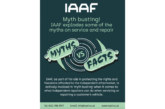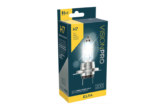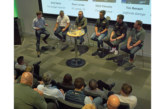Retaining access to the OBD port is one of the pivotal issues in the automotive aftermarket. In an attempt to provide some clarity on the topic, PMF has approached a select group of individuals, from different areas of the industry, to comment on what the future holds for the OBD and the aftermarket.
So, what is the OBD issue? To put it simply – which is no mean feat considering the complexity of European legislation – VMs are slowly cutting the aftermarket out of the loop when it comes to accessing vehicle data. This data is vital to businesses, because without it, it becomes near impossible to professionally service or repair a vehicle.
How have the VMs managed to get away with this? Well, they have exploited a ‘loophole’ in the European legislation concerned with the OBD connector. Although VMs are legally required to have their data accessible, they have made only limited data available through the OBD connector, which scuppers the independent sector’s ability to do its job. What’s worse is that the first cars to have this limited connector have made it to market. Essentially, if nothing changes, future diagnostics procedures would rely almost entirely on consent from the VMs; establishing a VM monopoly, which could have tragic consequences for the automotive industry.
Recently, there has been some breakthrough in campaigning against this legislative loophole, but much more needs to be done before this issue is settled. To gain a better understanding of market perceptions, what follows is a selection of opinions on the topic from all corners of the aftermarket.
Steven Paterson – Head Technician at Krypton Garage and MOT Centre
 “Well, if we are to believe the rumours about the independent sector about diagnostic OBD ports being removed, and manufacturers generally closing their doors on access to information, it could be argued that we might as well close up shop now.
“Well, if we are to believe the rumours about the independent sector about diagnostic OBD ports being removed, and manufacturers generally closing their doors on access to information, it could be argued that we might as well close up shop now.
“I believe it will only get better – at least for those willing to adapt to the changes that our industry is seeing. Manufacturers need us, let’s not forget this. They don’t have the manpower, resources and, more importantly, a customer base that is willing to pay the prices they demand. As such, many of them are now taking advantage of allowing us access to information and tools, and I expect things to be better, not worse, in the coming years. The days of DIY mechanics and ‘Fred in the shed’ type enterprises definitely look like they’re numbered, which should mean more work for serious, professional independents. Only time will tell.”
Josh Jones – regular PMM contributor and professional technician
 “I grew up on a dairy farm and occasionally I would get up before school to help milk 120 cows. There is now a huge worry in the farming community that producing milk is barely profitable due to changing factors in the way the UK buys milk at wholesale level.
“I grew up on a dairy farm and occasionally I would get up before school to help milk 120 cows. There is now a huge worry in the farming community that producing milk is barely profitable due to changing factors in the way the UK buys milk at wholesale level.
“Having watched this take place first-hand, it reminded me of when I started working in an independent garage. Both industries have concerns over the long term viability of providing their service/producing their product due to modernisation but the odd thing is there is still massive demand for the output of both industries. Again, in both cases there are businesses that have fallen by the wayside but there are many that have decided that change is necessary in order to survive.
“My point is that anyone can moan that their industry is changing, but for those who roll with it and adapt their business accordingly then the future is bright. I believe that independent garages that adapt to market demand by means of being capable to repair up to date vehicles competently, will be here in another 35 years.”
Dave Richards – Launch UK Managing Director
 “Although crucial provisions on the OBD connector and access to RMI have recently been included in the proposed EU legislation on Vehicle Type-Approval Regulation, the future of the aftermarket regarding access to in-vehicle data is still yet to be set in stone.
“Although crucial provisions on the OBD connector and access to RMI have recently been included in the proposed EU legislation on Vehicle Type-Approval Regulation, the future of the aftermarket regarding access to in-vehicle data is still yet to be set in stone.
“The importance of an accessible OBD port is crucial for technicians, and the absence of one could lead to severe consequences for the future of the aftermarket. Independent garages would clearly suffer, but it would also significantly impact the consumer, as the aftermarket would not be able to continue to offer a competitive choice in vehicle servicing and repair.
“The missing OBD connector would also be detrimental to the entire spare parts supply chain including manufacturers, distributors, producers of diagnostic equipment and dedicated software for the OBD connector, as well as millions of drivers who would suffer the consequences of disrupted competition within the market.
“As a result, diagnostic products are now more ‘loaded’ with features than ever before and the pace of technological change is represented in new models. We have recently introduced the X-431 Euro Tab to our X-431 range, which is a prime example of these ‘new generation’ diagnostic tools.”








